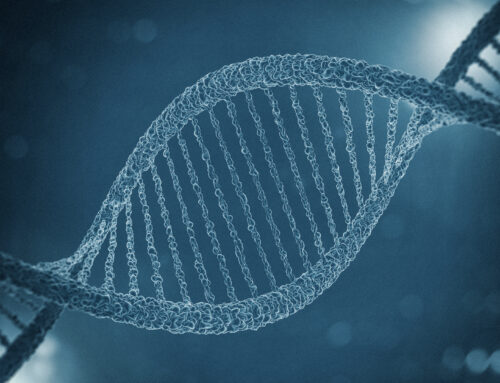
Much of the liturgy around Yom Kippur centers on the unknowns in our lives. In particular, the poem Unetanah Tokef, which we read on Rosh Hashanah and Yom Kippur, focuses on the mysteries of the future. The poem describes how each person’s fate is written and sealed during the High Holidays, including who will live, who will die, and how they will pass on. The text also lists various blessings and challenges that may be part of someone’s life.
This metaphor of fate being “inscribed” in the Book of Life or the Book of Death is similar to how people often talk about their genetics. On more than one occasion, I’ve had a friend with a strong family history of cancer say, “Well, I guess I’m doomed.”
The poem’s descriptions of life and death seem to confirm that many of us will meet an unhappy end, even if we don’t know it yet:
How many shall pass away and how many shall be born,
Who shall die in old age, and who before their time,
Who shall live and who shall die,
Who shall perish by water and who by fire,
Who by sword and who by wild beast,
Who by famine and who by thirst,
Who by earthquake and who by plague,
Who by strangulation and who by stoning,
The poem paints a picture of various characters in a book—they may not yet know what will happen to them, but their story is unfolding along a predetermined path.
While our liturgy emphasizes that aspects of our lives are out of our control, that’s not the only message. Unetaneh Tokef also tells us that we have the opportunity—and responsibility—to take ownership over our lives through our actions. After the laundry list of blessings and curses, the poem continues:
But repentance, prayer, and righteousness annul the severe decree.
According to this tradition, we do have an opportunity to alter the course of our lives. That’s true, too, when it comes to genetics. Our genetics may increase our chances of a specific disease, but DNA is not fate.
In particular, there are various ways that you can reduce your genetic risks. Take the opportunity of these High Holy Days to protect your family’s health. Here are a few steps you can take:
- If you’re planning to start a family or you know someone who is, then seek out carrier screening. Screening before pregnancy gives couples the most options
- To address your risk of cancer:
- Gather your family’s health history and share it with your healthcare provider
- Seek out regular cancer screening. If you are not sure how often to get screened or for what, ask your healthcare provider or talk to a genetic counselor
The Sarnoff Center wishes you a sweet New Year, and an easy fast.


